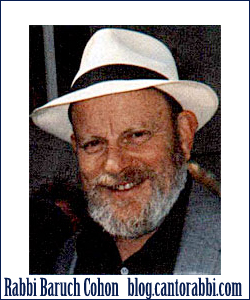Last week, in Genesis 42, Josephs epic has him taking advantage of his brothers by accusing them of spying. Then he demands that they bring their youngest brother Benjamin when they come back to buy more food. He even takes one of them hostage, Simeon, to make sure they will do that. Now they remember their real offense when they ignored their brother Josephs pleas and sold him into slavery and they talk to each other about it. Thats why this trouble came upon us, they say. All this in Josephs presence, but unaware that he understands every word. Kee ha-meylitz bey-no-som for the interpreter stood between them. Joseph spoke to them only in the Egyptian language, which the interpreter translated to Hebrew. Of course Joseph needed no translation. So he leaves the room, goes into his private quarters and weeps, then returns to continue playing his role of authority. In this way he engineers the opportunity to see his only full brother again, young Benjamin.
When they do convince their father Jacob to release Benjamin for the next trip to Egypt, Joseph carries his cat-and-mouse game to another level. He has his private goblet placed in Benjamins traveling bag, and sends his servants after it. All 11 brothers are brought back to the palace. Now he demands that they leave Benjamin with Joseph as his slave in punishment for this alleged theft.
This week Chapter 44 and 45 relate the response Joseph gets to his game. Judah, who is emerging as the natural leader of the family even though he is not the first-born approaches this Viceroy of Egypt and spells out his familys case. He is eloquent in describing Jacobs attachment to Rachels sons one who is presumed dead and this his youngest and predicts the old mans death of grief if Benjamin does not return.
For Joseph, this is more than he can bear. He cries out All my men, leave my presence! And obediently, they all exit the attendants, the minor dignitaries, and the interpreters. Now he faces his brothers and speaks to them in Hebrew: Anee Yosef, he says: I am Joseph. Is my father still alive? Predictably, we learn that the brothers are nonplussed. They cannot even answer him, even though they are now speaking the same language. So he asks them to come close to him, as he makes his true identity known to them.
Why come close? Didnt he prove himself by speaking Hebrew? Our commentators tell us that was not really enough. The Or haHayyim says he needed them close enough to whisper to them, aware that his Egyptian advisors would be listening through the keyholes. Certainly Joseph has a lot to tell his brothers, about how he is dealing with the famine, about the Land of Goshen where he plans to settle them, maybe even about why he had to shave off his beard. Dont think it was you who sent me here, he says. G-d sent me to prepare a refuge for our family.
That is one explanation. The Kli Yokor commentary has a different one: he had them come close so he could show them he was circumcised. Proof positive that he was one of them.
Sometimes we need to stop taking advantage and prove our connection to each other. More often we need to stop pretending and connect with our own identity.


